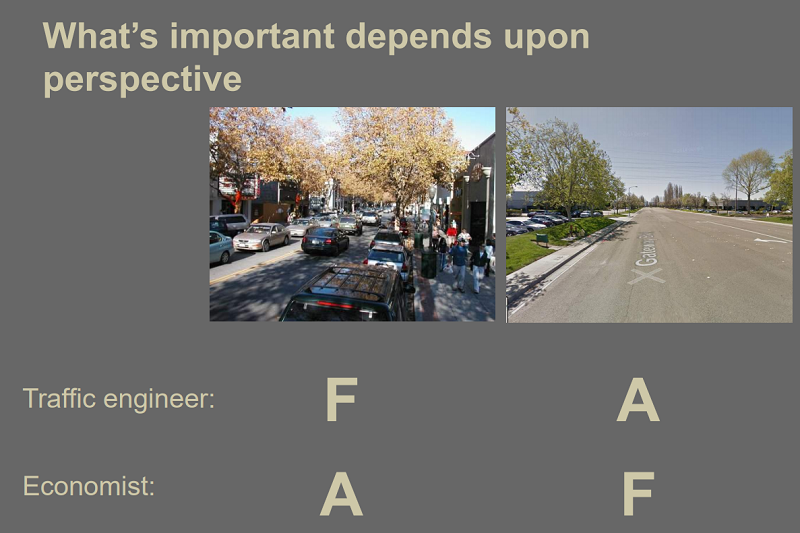
Tonight. the city of Pasadena is looking at a key planning tool "Vehicle Miles Traveled," with big implications for walkability, bikeability, transit, and housing. The city showed leadership in adopting VMT early, and support is needed to ensure that VMT remains city planning policy.
The issue is a wonky one. Basically, for several decades, California's environmental evaluations of projects - from housing to rail lines to highways - focused on measuring delays to drivers. Driver delays were measured using a pernicious outdated pseudo-science called "Level of Service" (LOS.) In 2013, new state legislation S.B. 743 directed California to, over time, end use of LOS for measuring environmental impacts. Ultimately, the state adopted a new environmental impact measuring tool called "Vehicle Miles Traveled" (VMT.) Using VMT means that environmental studies focus on actual environmental impacts, especially including pollution and global warming.
In 2014, Pasadena became the first city in California to adopt the new VMT metric. As stated in the Pasadena Complete Streets Coalition (PCSC) excellent recent alert/explainer piece, Pasadena's goals included being able to evaluate projects not only on their impact on traffic congestion, but also on their value in improving social, environmental, economic, and health goals.
The city of Los Angeles city adopted VMT in 2019. Under state law, all California municipalities will have to use VMT starting July 1, 2020 - though cities themselves set specific thresholds for what new VMT will be considered an impact to the environment.
Some Pasadena nimbys have complained that the new VMT metric makes it more difficult to fight proposed new developments. Typically, under LOS, anti-traffic complaints could be counted against projects - especially against new housing. This is largely not the case under current VMT rules.
One Madison Heights Neighborhood Association leader opined at Pasadena Now that using VMT is fostering "infill development" leading to Pasadena residents "fearing for their safety and suffering a reduced quality of life."
On tonight's Pasadena City Council meeting agenda, there is an informational item on Transportation Performance Measures. The staff report expresses support for the city's VMT-based metrics as a "more sustainable and holistic approach," though it does recommend the common sense step of soon updating the city's environmental impact baseline to reflect current conditions. Pasadena's current thresholds are based on 2013 data and need to be updated to reflect more current conditions. There is nothing in the staff report to suggest that the city would move to abandon or de-emphasize VMT.






